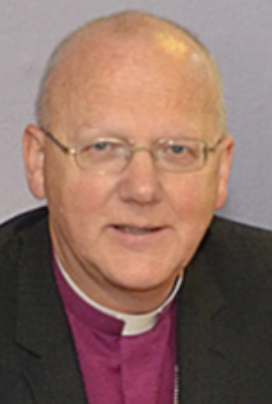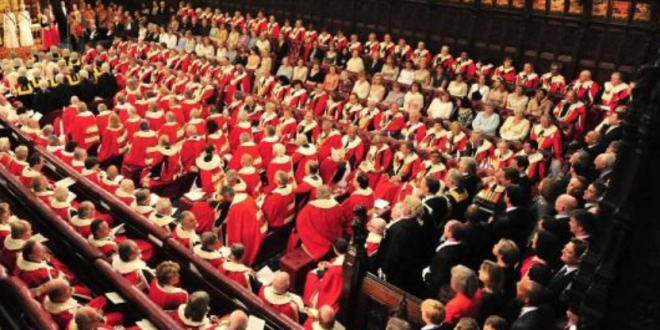Betting leadership should monitor the movements of The House of Lords Liason Committee, which is being urged to review all UK gambling policies and social consequences which have followed the implementation of the 2005 Gambling Act…
__________
Political analysis of the gambling industry is set to intensify as the ‘House of Lords Liaison Committee’ has received proposals for its new special inquiries committees, one of which will review the social and economic consequences of gambling, plus the effect of the 2005 Gambling Act.
The main motivation for the increased scrutiny on the gambling industry has been the rise of online gambling that has expanded the opportunities to place a bet remotely.
The latest report from the Liaison Committee estimated that 340,000 people are currently afflicted with problem gambling issues, or gambling which disrupts and damages personal and family lives.
There will also follow a re-evaluation of the 2005 Gambling Act which replaced and consolidated the Gaming Act 1968; the Betting, Gaming & Lotteries Act 1963; and the Lotteries and Amusements Act 1976.
Some of the key changes that the 2005 Act introduced included the creation of the Gambling Commission as a unifying regulator for the industry, imposing a new licensing regime for commercial gambling.
The Gambling Commission, alongside licensing authorities, was also given shared responsibility for granting gaming and betting permissions, a duty that previously came under the remit of licensing justices.
Any special inquiry is also likely to appraise a consultation held by the Department of Culture, Media and Sport between November and December in 2016, which proposed amendments to the 2005 Act.
The gathering focused on Schedule 6 of the Act, which lists the bodies that the Gambling Commission can share information with, and who can share information with them. These organisations include sports governing bodies, who identify breaches of sports betting rules, or any other suspicious behaviour that contravenes sports’ codes of betting conduct.
Several issues were highlighted in the Liaison Committee’s report that might be considered for review. Among them is the economic burden that gambling places on public services arising from related mental health problems and increased pressure on hospital inpatient services. Welfare and employment costs are also likely to come under scrutiny with a specific focus on Job Seekers Allowance claimant costs and lost labour tax receipts.
Other aspects of the report that could be reviewed include taxation of offshore gambling companies, the effect of the voluntary levy on gambling charities and the possible impact of gambling advertising. The ‘gamblification of sport’, due to any involvement of betting companies in sports, is another issue that may come under the microscope.

Chris Snowdon, Head of Lifestyle Economics, at the Institute of Economic Affairs, weighed up the pros and cons of the 2005 Act, saying: “In the end it was an Act that was watered down in haste before the election, which had a negative effect on casino deregulation, with the ridiculous outcome being that they can still only open in certain areas.”
Snowdon added that there were “plusses” in that the Act got rid of the 24-hour rule dictating that everybody had to be a member of a casino to walk into one. It also facilitated the legalisation of gambling advertising, after 9-pm, and during sports events.
That could change, however, as gambling companies agreed in principle last December to a “whistle to whistle” ban on advertising during live sports, even if the event has started after the watershed hour.
“What you are finding at the moment” continued Snowdon, “is that companies advertise a lot when there is competition for a new market leader, or there is a belief that the opportunities to advertise will be curtailed, both of those circumstances are currently happening at once. Overall, it was an Act that came about at a bad time, as it has missed the rise of online gambling, which has presented opportunities as well as problems.”
Snowdon remains uncertain as to which of the suggested issues will be eventually scrutinised, as much depends upon the formation of the committee. To date, cross-party groups on gambling issues appear to have been largely ineffective.
He continued: “Looking at the economic data, these committees often have a one-sided view of the issues, reviewing the intangible costs, but dismissing the tangible benefits of the industry. I am in favour of gambling companies putting money into charities that look into some of the negative effects of gambling, even though I don’t believe that they have any moral duty to do so.”
Ultimately, said Snowdon, the onus of responsibility lies with the end user when it comes to responsible gambling. “It’s not obvious to me that the gambling industry acts in an immoral way,” he noted. “It’s down to the discipline of the individual when it comes to problem effects of gambling.”
Exactly what the House of Lords committee expects to achieve from a review is likely to become much clearer as and when the Brexit issue has finally been resolved, and the Queen’s Speech has been read, outlining what the government’s legislative programme will be.

Marc Etches, CEO of GambleAware, commented: “Gambling is a public health issue, and we welcome the House of Lords’ special inquiry on the social and economic consequences of the gambling industry. Around two million adults in Britain suffer some level of gambling-related harm, including 340,000 problem gamblers.
“We are particularly concerned about the normalisation of gambling for children, who are growing up in a very different world from their parents with one in eight 11 to 16-year-olds reported as following gambling companies on social media.”
The charity has also raised its concerns over gambling-related marketing, and children’s exposure to it. In response to the issue, research has been commissioned to investigate the effects of marketing on children and young people, and other potentially vulnerable groups.

Dr Alan Smith, the Bishop of St Albans, who took his seat in the House of Lords in 2013, has been a long-standing critic of the gambling industry, and said of the special inquiries report: “When I first started campaigning for better protection for children and the most vulnerable from harmful gambling products, I knew we needed this kind of independent evidence-based approach.”
For the time being the gambling industry, its satellite charitable organisations and ever-present band of dissenters will have to wait until political conditions are sufficiently clement to allow a clear and uninterrupted view of the 2005 A









